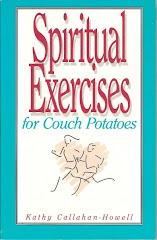Why would Boaz, a man of stature in the community, of ample means, who could have presumably arranged a marriage with the young woman of his choosing, agree to marry a foreigner who was also a widow? Widows did not carry the shame of the divorced, but they were not seen on equal grounds as a never married virgin. And this woman was a Moabite, a tribe detested by Israel due to their previous lack of hospitality to Israel in her travels. Why would a righteous Israelite extend hospitality to a Moabite widow?
Maybe he just found her attractive, or was impressed by her kindness to her mother-in-law, these reasons are hinted at in the Scripture. But perhaps his willingness to even consider Ruth traces back to his childhood, “Salmon the father of Boaz, whose mother was Rahab.”
Rahab impacts the future of the nation of Israel with her own hospitality to foreign spies sneaking into her hometown. Not only does she welcome them into her home, she subsequently hides them from the King’s men, advises them how to hide safely, and lowers them from her own window to escape. She also tells them of the fear of her people toward Israel and their God, and proclaims with great enthusiasm that the God of Israel is God of heaven and earth.
Because of her kindness and courage, the men rescue Rahab and her family when they take the city, and she then lives with the Israelites. Specifically we see from the genealogy of Jesus that she marries a man named Salmon, of whom we know nothing except for his appearance in the genealogies of David and Jesus. Any man would be blessed to have Rahab for his wife, a woman who could think on her feet, already had her own business with a side hustle of flax, was kind to strangers and believed in the God of Israel.
And yet, taking her on involved swallowing her past, as throughout the Bible in both the Old and New Testaments with the sole exception of the quote from Matthew’s genealogy she appears as Rahab the prostitute. Even when the writer of Hebrews and James are praising her for her faith, they still refer to her as Rahab the prostitute. The fact that centuries later her former life labels her over her status as an ancestor of King David and of Jesus would suggest that perhaps in her lifetime this past followed her as well. So Salmon had to marry her with that knowledge, as well as the fact she was also a foreigner. But marry her he does, and as his future descendent Solomon would someday describe, found a worthy wife.
This provides the setting for Boaz’ childhood. He grows up in a community where the ethnicity and former profession of his mother perhaps come up from time to time. And yet his father models love and acceptance. Was Salmon one of the spies who checked out Jericho? We don’t know, but it’s easy to imagine him being impressed with her level head in a crisis and determining to marry her.
When Boaz finds himself presented with a different and yet similar opportunity, he does not hesitate. And from this lineage comes King David, and someday Jesus. Bryan Stephenson, who wrote Just Mercy, says, “Each of us is more than the worst thing we’ve ever done.” Stephenson and his law associates serve those especially on death row who were wronged accused. They look past the accusations at the reality. That’s what Salmon and Boaz did as well, instead of letting the past of these women distract them, they found them worthy.
The way we raise children makes a difference in how they treat others. This seems simple and we easily think it only includes teaching them manners and other common courtesies. Yet the biggest impact happens in everyday life, watching parents live out their mercy and kindness. It wasn’t Salmon teaching Boaz the Ten Commandments that shaped his attitude toward Ruth as much as Boaz growing up watching his father honor his mother yet hearing the rumors around town.
This matters in our current conversations about race. We can say all the right things, but what do our children see us doing? Do we actually have friendships with people of other races? Do we invite them into our home?
Recently I listened to two young Christian activists who had been involved in protests against police violence toward Black people. They both cared intensely and had put themselves in harm’s way in their city to stand as allies in the movement. One had been raised in a White rural environment. The other had grown up in the city, the child of a pastor, attending a diverse church. As I listened I could hear the difference in their understanding of race. My observations do not diminish the passion and commitment of the person raised in a monoculture. Typically we can’t change our childhood environment. But we can chose where we live as adults, and what we purposefully expose our children to.
If we make life choices that place us in diverse neighborhoods and churches, we will learn so much about how to navigate in a multicultural world. If we become parents our children will naturally become more literate in other cultures if we are engaged in that environment. Just moving into a diverse neighborhood but living in our own cultural bubble will not have the same effect. If we want to teach hospitality, we must live it, not only with those who resemble us, but with those vastly different. Like Salmon and Boaz, let us look past the previous experiences of those we encounter, and be people of grace and kindness.





No comments:
Post a Comment